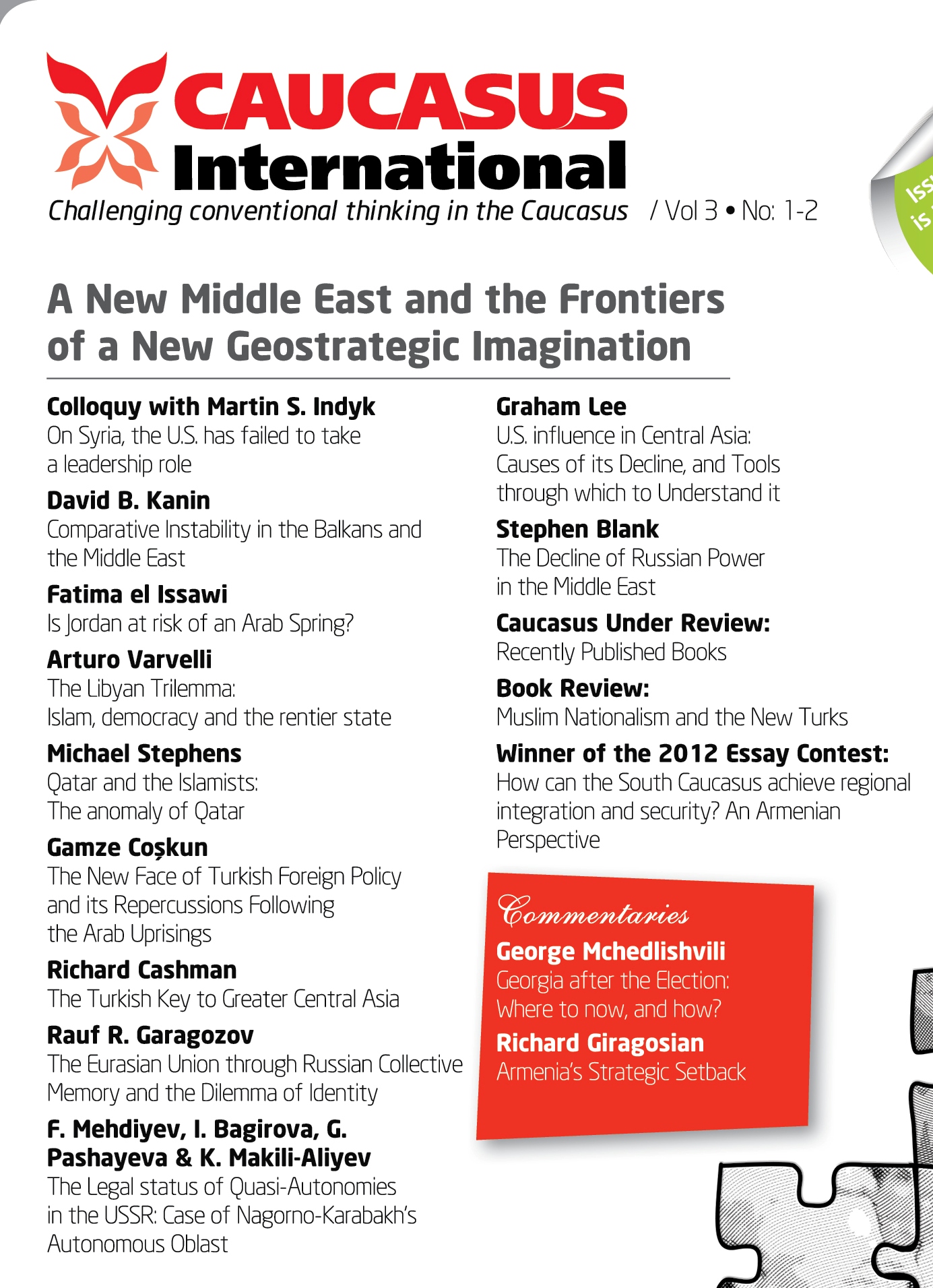The Eurasian Union through Russian Collective Memory and the Dilemma of Identity
The Eurasian Union project recently put forward by the Russian government has become the object of broad speculation among political analysts regarding Russian intentions and goals regarding the former Soviet republics, what has become known as “the near abroad.” These accounts mainly consider the project within the “Realist” approach and discuss its political or economic aspects. Rarely, however, do they touch on its cultural or psychological dimensions. The current paper argues that the idea of Eurasian Union, well beyond any political or economic rationales, is underpinned by traditions of Russian collective memory and identity. This essay analyses Russian historical narratives as a specific type of mnemonic device in this context, suggesting how they work as cultural tools to promote collective remembering.
Latest news
- 03/17/2020 Call for Submission: “Non-Alignment Movement and Its Perspective in International Affairs”. Deadline: 1 July 2020 2625 views
Popular articles
- 02/24/2020 The Role of Irredentism in Russia’s Foreign Policy 2536 views
- 02/24/2020 Construction of sub-national identity vis-à-vis parent state: Gagauz case in Moldova 2218 views
- 02/24/2020 The Conflict in Ukraine - The Geopolitics of Separatism and Divergent Identities (Commentary) 2072 views
- 02/24/2020 The Role of the Soviet Past in Contemporary Georgia 2044 views





